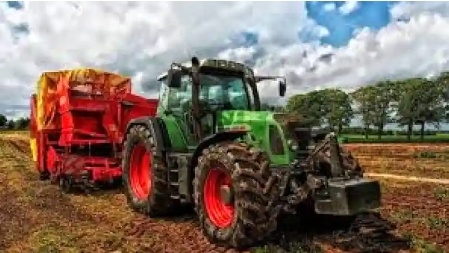profile/3422IMG_20200713_104037725.jpg
Patrick49

Industrial Agriculture Threat To The Environment
~2.2 mins read
NAIROBI] Local and international donors are investing more in industrial agricultural projects to the detriment of interventions that simultaneously transform food systems and protect the environment, a report says.
The report, developed by the UK Institute of Development Studies, Swiss Biovision Foundation for Ecological Development, and the International Panel of Experts on Sustainable Food Systems (IPES-Food), adds that African smallholders’ vulnerabilities to negative social and environmental impacts such as insecure land rights and severe droughts respectively call for a viable agricultural approach called agroecology that builds sustainable environment and resilient food systems.
According to the report, agroecology is a farming method that promotes the use of nature including plants to enrich soils, improve soil health and fight agricultural pests. Large-scale production of crops and animals — industrial agriculture — leads to excessive use of chemical fertilisers and pesticides with environmental hazards including pollution.
The report, developed by the UK Institute of Development Studies, Swiss Biovision Foundation for Ecological Development, and the International Panel of Experts on Sustainable Food Systems (IPES-Food), adds that African smallholders’ vulnerabilities to negative social and environmental impacts such as insecure land rights and severe droughts respectively call for a viable agricultural approach called agroecology that builds sustainable environment and resilient food systems.
According to the report, agroecology is a farming method that promotes the use of nature including plants to enrich soils, improve soil health and fight agricultural pests. Large-scale production of crops and animals — industrial agriculture — leads to excessive use of chemical fertilisers and pesticides with environmental hazards including pollution.
Researchers analysed 445 agricultural research for development projects in Kenya funded by institutions in Kenya, Bill and Melinda Gates Foundation (BMGF) and Switzerland and assessed the projects’ contributions to the country’s transition to sustainable food systems.
“As many as 85 per cent of projects funded by the BMGF and more than 70 per cent of projects carried out by Kenyan research institutes were limited to supporting industrial agriculture,†says the report published this month (10 June).
“Just 13 per cent of Swiss-funded projects focussed only on industrial agriculture and efficiency-based approaches,†the report adds.
Olivier De Schutter, co-chair, IPES-Food and co-author of the report, tells SciDev.Net that large donors and governments often do not believe that agroecology can be sufficiently productive and meet the challenge of rising demand for food.
“Big donors tend to neglect the potential of agroecology, in part, simply because of a lack of imagination,†explains De Schutter. “The green revolution technologies [such as chemical fertilisers] have since the 1960s been promoted as the only pathway that could be followed, without any serious consideration of the alternatives.â€
The 445 research projects, which were implemented from 2013 to 2018, had a total budget of nearly US$1.2 billion.
But the Bill and Melinda Gates Foundation said in an email statement that their agricultural development investments seek to make smallholder crops and livestock more productive, improve nutrition, and help empower women farmers.
“Over the past decade, we have worked closely with national partners in Sub-Saharan Africa and South Asia, to identify and support a wide range of innovations, investments, and policies that empower farmers with the tools they need to improve their livelihoods and lift their communities out of poverty,†the statement says.
“As many as 85 per cent of projects funded by the BMGF and more than 70 per cent of projects carried out by Kenyan research institutes were limited to supporting industrial agriculture,†says the report published this month (10 June).
“Just 13 per cent of Swiss-funded projects focussed only on industrial agriculture and efficiency-based approaches,†the report adds.
Olivier De Schutter, co-chair, IPES-Food and co-author of the report, tells SciDev.Net that large donors and governments often do not believe that agroecology can be sufficiently productive and meet the challenge of rising demand for food.
“Big donors tend to neglect the potential of agroecology, in part, simply because of a lack of imagination,†explains De Schutter. “The green revolution technologies [such as chemical fertilisers] have since the 1960s been promoted as the only pathway that could be followed, without any serious consideration of the alternatives.â€
The 445 research projects, which were implemented from 2013 to 2018, had a total budget of nearly US$1.2 billion.
But the Bill and Melinda Gates Foundation said in an email statement that their agricultural development investments seek to make smallholder crops and livestock more productive, improve nutrition, and help empower women farmers.
“Over the past decade, we have worked closely with national partners in Sub-Saharan Africa and South Asia, to identify and support a wide range of innovations, investments, and policies that empower farmers with the tools they need to improve their livelihoods and lift their communities out of poverty,†the statement says.
Advertisement

Link socials
Matches
Loading...
